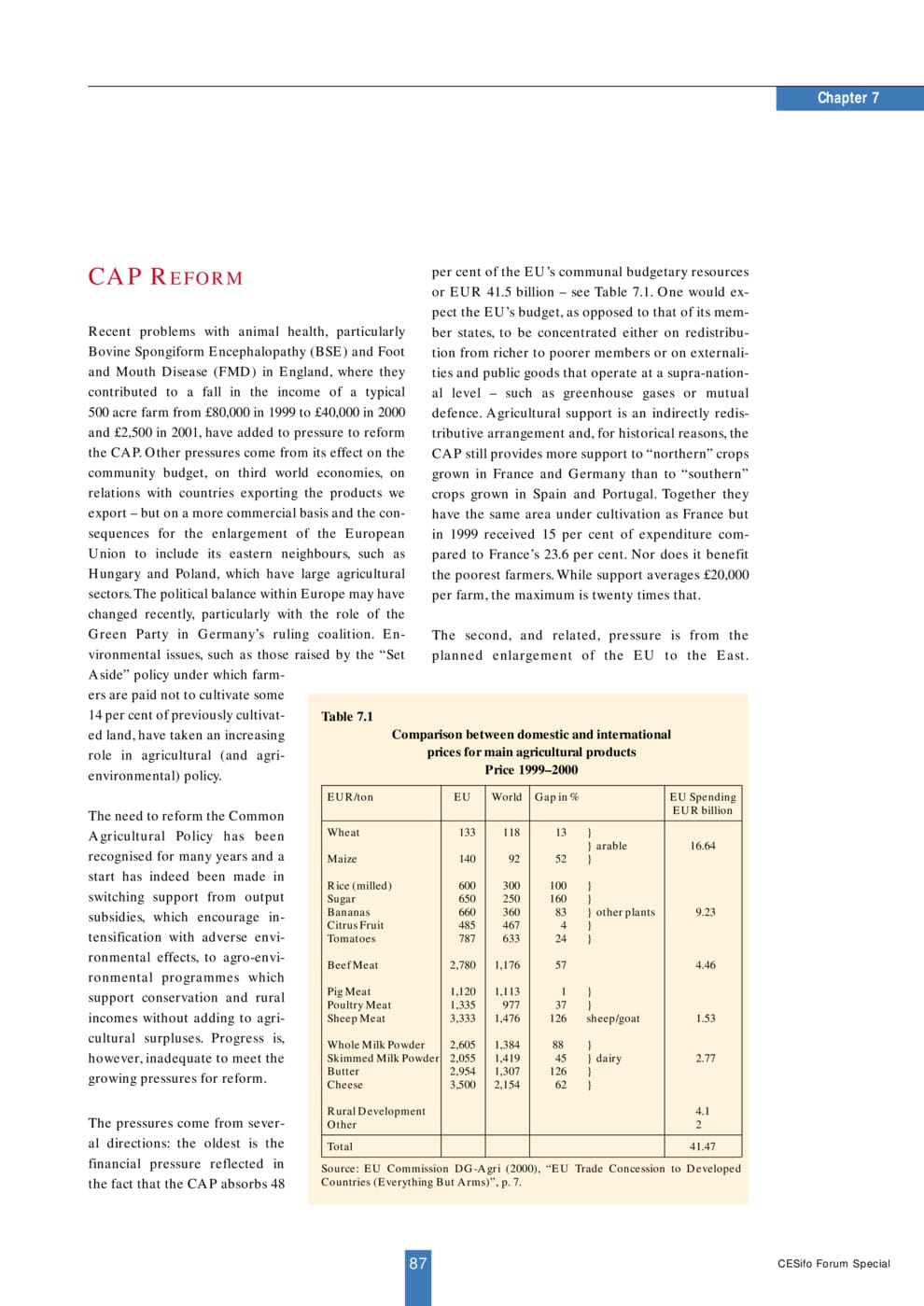CAP Reform
Ifo Institute for Economic Research, Munich, 2002
in: EEAG European Economic Advisory Group at CESifo: Report on the European Economy 2002 (CESifo Forum Special), 87-91

This chapter re-examines the case for reforming the Common Agricultural Policy. The health and environmental aspects of modern agriculture have been highlighted by British experience with BSE and FMD. Historically, agricultural support has been rationalised by reference to security of supply, income maintenance, or, increasingly, environmental concerns. It is argued that production price supports, the scale of which is set out, act as incentives to intensification which is environmentally damaging and poses threats to animal welfare and human health. Hormone beef and GMOs are no more threatening to the health of Europeans than of Americans and therefore should not be an issue in transatlantic trade although regulation of their use in production may be in order.Trade with developing countries is also affected by the CAP to their disadvantage on average – a problem that might be aggravated by EU enlargement to include countries such as Poland and Hungary with large agricultural sectors. The EU allows member states to enforce standards of animal welfare in excess of Union-wide minima. It is argued that doing this merely diverts production to less demanding regimes. It would be better to define different standards and to acquire appropriate labelling (as also of hormone use, GMOs etc). Farm support should be switched much faster from price support (with the environmentally damaging side effects) to explicitly environmentally friendly programmes (possibly rationally administered within an EU framework) compatible with a more liberal trading regime.
Included in
EEAG European Economic Advisory Group at CESifo: Report on the European Economy 2002
Ifo Institute for Economic Research, Munich, 2002